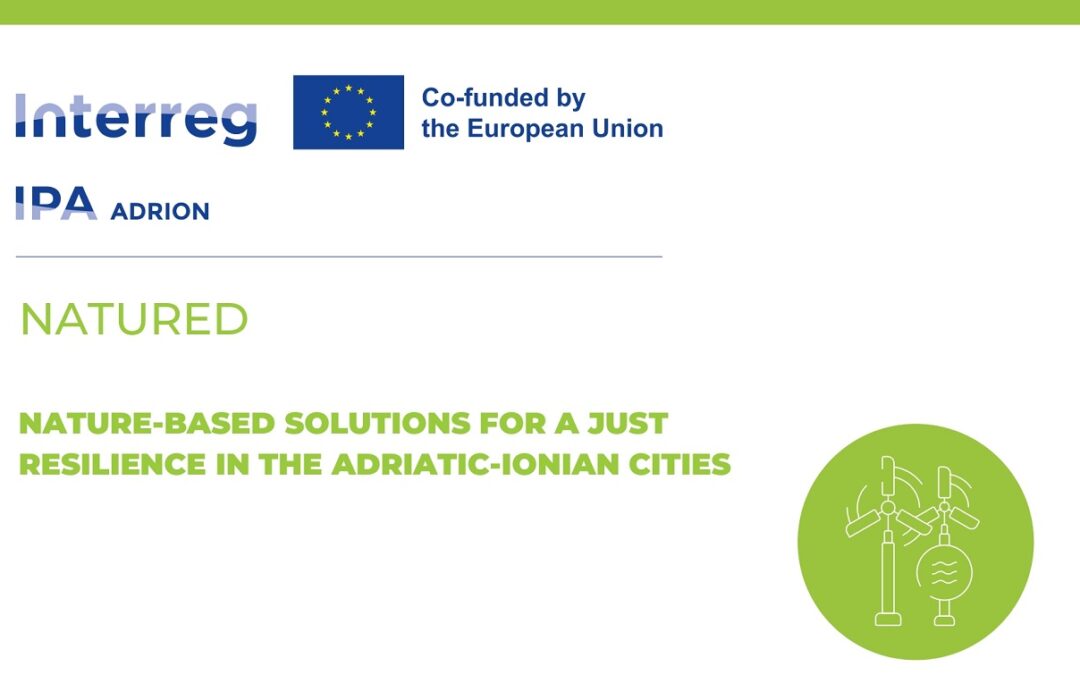The ADRION region is a hotspot of climate change. The consequences are evident and increasingly frequent: flooding, droughts, landslides, storms, and wildfires. The impacts of these events on individuals, communities, and regions vary, depending on their vulnerability and level of exposure.
In such a context, the overall objective of NATURED is to enable policymakers and stakeholders to prevent the effects of climate change in various urban zones—particularly flash floods and urban heat islands—by adopting Nature-based Solutions (NbS) for adaptation. The most vulnerable groups—such as those living near rivers and more exposed to flooding or heat waves—will be the main beneficiaries. The intended change is to promote a just, safe, and inclusive resilience, ensuring no one is left behind in adapting to climate change.
This will be achieved through a range of interlinked activities and outputs, including: understanding interactions between climate and urban environments; developing databases and digital maps identifying climate vulnerability and hazard zones; and engaging citizens and stakeholders to co-create action plans for Nature-based Solutions. These plans will then be tested through pilot actions and integrated into city public work plans, with a roadmap to scale up the most effective solutions.
The project adopts a transnational approach, recognizing that climate change knows no borders. The Adriatic-Ionian region, encompassing multiple countries and cities, shares common vulnerabilities that demand collective effort and coordinated action. NATURED follows a place-based approach, which is essential for effective climate adaptation. Its originality lies in integrating Nature-based Solutions into municipal work plans, shifting from a dominant reliance on grey infrastructure.
As part of this effort, members of the Institute for Sustainable Development have contributed their expertise during the preparation of the NATURED project application. Moreover, Mr. Agon Ferati, Head of the Institute, will play a key role during the implementation phase as an expert on sustainability and resilience, further strengthening the project’s capacity to deliver inclusive and effective climate adaptation strategies.

